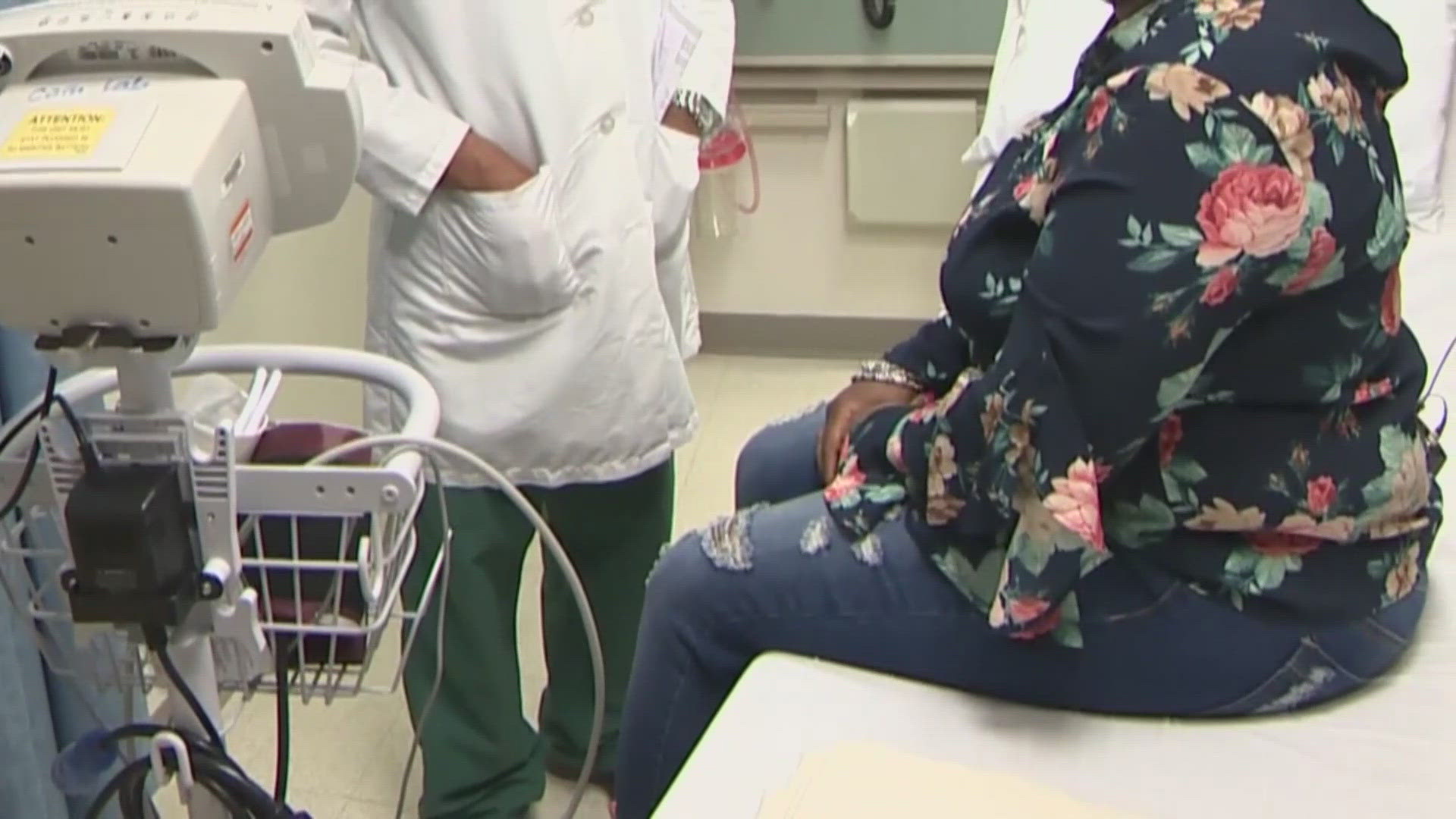JACKSONVILLE, Fla. — Throughout the week we've delved into The Untold Truth, sharing the disparities Black women face, leading to poor health outcomes, including cancer death rates that are nearly double other races and ethnicities. There are programs in place to help bridge the gap, but experts say more research is needed to make a bigger impact.
"The fact that we can call out statistics for breast cancer, cervical cancer, for colon cancer, for lung cancer and identify disparities not just for Black women but for Hispanics, for those in lower socioeconomic areas, disparities are a real thing," GuideWell's Chief Health Equity Officer, Dr. Kelli Tice said.
In Jacksonville's Florida Blue headquarters, Tice shared why she's chosen to join 100,000 women across the U.S. participating in the American Cancer Society's VOICES of Black Women study. The research collected over a 30-year period will be used to pinpoint why Black women are dying at a higher rate from preventable, treatable conditions, and change those outcomes.
"In the health equity field, we're working to close the gaps, and we do so first by understanding the data, and you can't have the data if you are not doing the research," Tice said.
She explains that historically in the African American community there's a valid mistrust of the health care system.
Black women have been reluctant to join research studies and clinical trials that could save lives.
"This is a monumental time and it's that way because we have for years, Black women, been underrepresented when it comes to not just care but treatment, identification and cure," Tice said. "We've been excluded from all of the things that give us the ability to survive cancer."
Black women are not more likely to be diagnosed with breast cancer but they're 41 percent more likely to die from it. Tired of just talking about solutions, she's joined the Jacksonville Transformation Coalition.
"We are working toward a vision for our subcommittee, 'Jacksonville, a place where it's easy to be healthy,'" Tice said.
Jacksonville's first Chief Health Officer, Dr. Sunil Joshi has helped implement programs in-line with that vision, including a Telehealth program called HealthLink Jax, for Duval's uninsured. He's also working to improve infant mortality rates.
"We are looking to reduce infant mortality, which is currently at 7.2 per every 1000 live births," Joshi said. "But the difference between white babies and Black babies is more striking (4.3 vs 11.7). Black babies are 2.7 times more likely to die in their first year of life."
Tice says there are health care barriers for Black women in particular, that no one should have to experience.
Keitha Nelson asked Tice, "What can we do for ourselves, what can Black women do right now?"
"Continue to ask questions, advocate for yourself in terms of selection of physician, getting your questions answered in clinical settings, understanding how you might need to shift or change to live a healthy lifestyle, and look for someone or something that facilitates and supports that for you."
If you are between the ages of 25 and 55 years old and you would like to participate in the American Cancer Society's VOICES of Black Women research study, visit voices.cancer.org.

